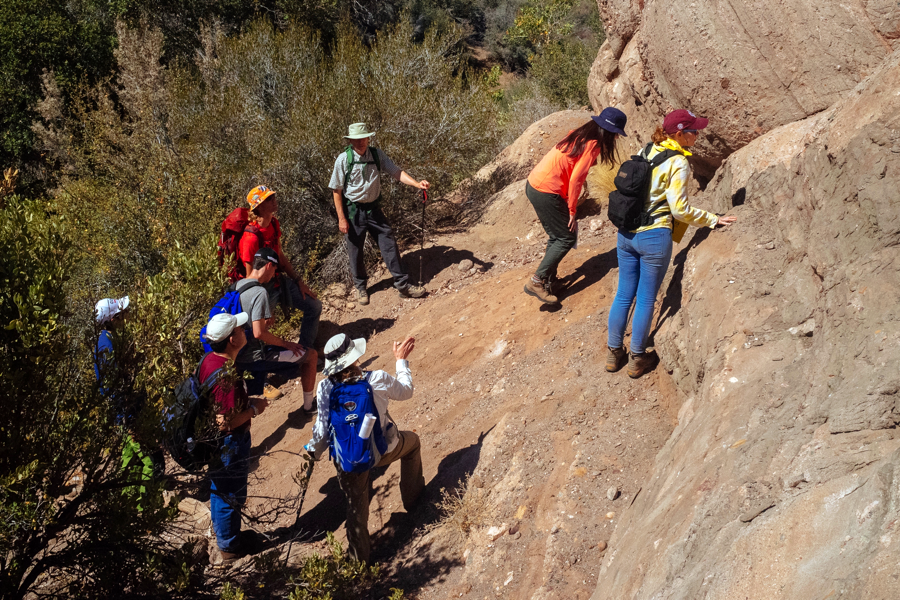All Categories
Featured
Table of Contents
Geophysical Survey - Durham University in Pearsall Australia 2020
This work is progressively contracted out, so consultancies offer another source of work. Consultancy firms differ in size, from very little companies to big multinationals. Some consultancies are quite specialised in utilizing particular geophysical methods or working in particular places, while others use a more diverse variety of services to their customers.
The extraction of gas from land fill sites is another location of work and this may grow in the future. Exploration business might carry out work for building and construction firms, public utility, mining companies and ecological agencies, so geophysicists may be used in any of these settings. Other employers consist of: geological surveysgovernment bodies and agenciesuniversities and research study institutes.


Jobs may be listed in the oil and gas sector press. Recruitment is affected by oil rate fluctuations and the level of competition for positions varies depending on this. Careers Days, which cover the complete variety of geoscience professions and are typically gone to by a variety of key industry employers, are run by The Geological Society.
Geophysical Surveying in Oakford Australia 2020
A few of the big oil and gas companies provide a complete two-year structured training programme across the breadth of geophysics, including the chance to experience operate in numerous teams prior to specialising in one area. Your training may consist of work on: existing wellsmagnetic and gravitational prospective field data analysisresearchrock analysis. It's more typical for your initial training to be provided on the task.

There might be a probationary duration during which you work alongside a skilled associate. Competency-based appraisals take location routinely in the majority of firms. In smaller firms, and for scholastic posts, there is not likely to be any official training - you'll be expected to start work straightaway and get abilities as you go along.
If you work for a smaller company, you might find that you require to take obligation for setting up and moneying your own advancement and training. If you have a geology degree, membership of The Geological Society can be useful for networking and for keeping up to date with the market.
5 Surface Geophysics in Gwelup Western Australia 2022
You may also discover it beneficial to join the PESGB (The Petroleum Exploration Society of Great Britain, which has a geophysics special interest group. After a probationary period, and once you have actually gotten some experience, you could advance to senior geophysicist, then team leader and then into a senior function in management.
The ease of movement in between functions depends on the business structure. Study at Masters or Ph, D level in a subject associated to geophysics or geosciences may assist with your career advancement and development. The employment market within the oil and gas industry is extremely depending on cost and this might impact your chances for career development.
However, not all jobs depend on the oil and gas industries. For knowledgeable geophysicists, freelance consultancy provides a good route for career advancement. You can likewise specialise in a specific area of geophysics. As a geophysicist, you're most likely to have several tasks throughout your working life. Global movement is important for dealing with peaks and troughs in various countries at different times.
Geophysicist, Exploration - Job Descriptions in Neerabup WA 2022
From geophysics, it's possible to focus on seismology (completing additional training to become a seismic interpreter) or to move into associated locations such as engineering geology or risk forecast.
Deciding what to study in college is a difficult choice. Even if you know that your field of interest depends on science, what program of study is ideal for you? If you make the choice to major in physical and biological sciences and pursue a profession as a geophysicist, you're getting ready for an interesting and rewarding occupation.
The first action to attaining your goal of ending up being a geophysicist is making a degree. Even for entry-level positions in the field of geoscience, you'll require a bachelor's degree (a geophysicist college degree) from an accredited college or university. Geophysicists should be able to: evaluate rocks, photos, and other pieces of data carry out research both in the field and in laboratories create maps and charts of their findings compose reports To achieve all this, trainees need a specialized education for geophysicist professions.
As specified above, you'll need a bachelor's degree in geoscience or an associated discipline, such as a physical science or a natural science, to land an entry-level job. Students can also prepare by majoring in topics like: Biology Chemistry Computer science Engineering Mathematics Physics The above geophysicist majors offer a more generalized technique to a single clinical discipline, but most programs require trainees to take one or more geology course.
Table of Contents
Latest Posts
Greeley-evans Area 3d Geophysical Survey in Bicton Australia 2022
Airborne Geophysical Methods in Bateman Western Australia 2022
Integrated Geophysical Surveys For The Safety in Beeliar Australia 2021
More
Latest Posts
Greeley-evans Area 3d Geophysical Survey in Bicton Australia 2022
Airborne Geophysical Methods in Bateman Western Australia 2022
Integrated Geophysical Surveys For The Safety in Beeliar Australia 2021